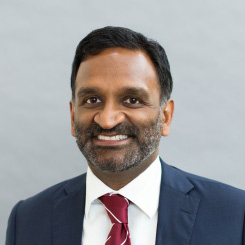Shock waves went through Rome at about noon today and the rest of the Catholic, make that the entire, world, as news came that Pope Benedict XVI will resign as Pope on February 28.
We’ll have much more from Rome about this tremendous, unprecedented event (Pope Gregory XII resigned in 1415 in very different circumstances).
Here’s what Pope Benedict had to say about a Pope resigning in the 2010 interview Light of the World:
Q:The great majority of [the sexual abuse] cases took place decades ago. Nevertheless they burden your pontificate now in particular. Have you thought of resigning?
A:When the danger is great one must not run away. For that reason, now [2010] is certainly not the time to resign. Precisely at a time like this one must stand fast and endure the difficult situation. That is my view. One can resign at a peaceful moment or when one simply cannot go on. But one must not run away from the danger and say that someone else should do it.
Q:Is it possible then to imagine a situation in which you consider a resignation by the Pope appropriate?
A:Yes. If a Pope clearly recognizes that he is no longer physically, psychologically, and spiritually capable of handling the duties of his office, then he has the right and, under some circumstances, also an obligation to resign.
And here’s the text of the Pope’s letter explaining his decision to the cardinals who are currently gathered in Rome:
Dear Brothers,
I have convoked you to this Consistory, not only for the three canonizations, but also to communicate to you a decision of great importance for the life of the Church.
After having repeatedly examined my conscience before God, I have come to the certainty that my strengths, due to an advanced age, are no longer suited to an adequate exercise of the Petrine ministry. I am well aware that this ministry, due to its essential spiritual nature, must be carried out not only with words and deeds, but no less with prayer and suffering. However, in today’s world, subject to so many rapid changes and shaken by questions of deep relevance for the life of faith, in order to govern the bark of Saint Peter and proclaim the Gospel, both strength of mind and body are necessary, strength which in the last few months, has deteriorated in me to the extent that I have had to recognize my incapacity to adequately fulfill the ministry entrusted to me.
For this reason, and well aware of the seriousness of this act, with full freedom I declare that I renounce the ministry of Bishop of Rome, Successor of Saint Peter, entrusted to me by the Cardinals on 19 April 2005, in such a way, that as from 28 February 2013, at 20:00 hours, the See of Rome, the See of Saint Peter, will be vacant and a Conclave to elect the new Supreme Pontiff will have to be convoked by those whose competence it is.
Dear Brothers, I thank you most sincerely for all the love and work with which you have supported me in my ministry and I ask pardon for all my defects. And now, let us entrust the Holy Church to the care of Our Supreme Pastor, Our Lord Jesus Christ, and implore his holy Mother Mary, so that she may assist the Cardinal Fathers with her maternal solicitude, in electing a new Supreme Pontiff.
With regard to myself, I wish to also devotedly serve the Holy Church of God in the future through a life dedicated to prayer.
From the Vatican, 10 February 2013
BENEDICTUS PP XVI

